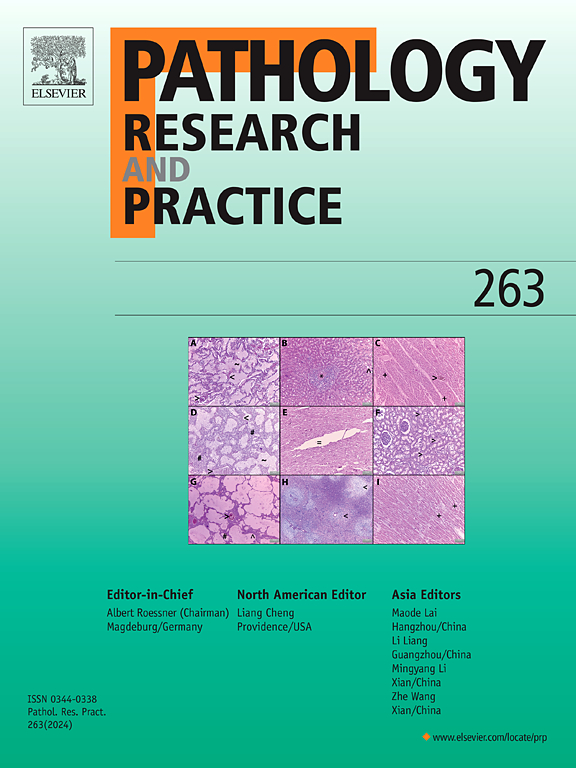Tumor-derived extracellular vesicles: Hijacking T cell function through exhaustion
IF 2.9
4区 医学
Q2 PATHOLOGY
引用次数: 0
Abstract
Extracellular vesicles (EVs) play a vital role in intercellular communication within the tumor microenvironment (TME). These vesicles, secreted by tumor cells, contain proteins, lipids, and nucleic acids that significantly influence immune responses, particularly impacting T-cell function. In cancer, T cell dysfunction and exhaustion—marked by reduced proliferation, diminished cytokine production, and impaired cytotoxic activity—are key barriers to effective immune responses. Tumor-derived extracellular vesicles (TEVs) contribute to this dysfunction by carrying immunosuppressive molecules, such as transforming growth factor-beta (TGF-β) and various microRNAs (miRNAs). These TEV-mediated mechanisms promote T cell exhaustion and foster a broader immunosuppressive environment, enabling tumor progression and immune evasion. Furthermore, TEVs have been implicated in resistance to cancer immunotherapies, including immune checkpoint inhibitors and T cell therapies. Understanding the molecular pathways and cargoes within TEVs that drive T cell dysfunction is crucial for developing novel therapeutic strategies aimed at reinvigorating exhausted T cells, enhancing anti-tumor immunity, and improving cancer treatment outcomes.
求助全文
约1分钟内获得全文
求助全文
来源期刊
CiteScore
5.00
自引率
3.60%
发文量
405
审稿时长
24 days
期刊介绍:
Pathology, Research and Practice provides accessible coverage of the most recent developments across the entire field of pathology: Reviews focus on recent progress in pathology, while Comments look at interesting current problems and at hypotheses for future developments in pathology. Original Papers present novel findings on all aspects of general, anatomic and molecular pathology. Rapid Communications inform readers on preliminary findings that may be relevant for further studies and need to be communicated quickly. Teaching Cases look at new aspects or special diagnostic problems of diseases and at case reports relevant for the pathologist''s practice.

 求助内容:
求助内容: 应助结果提醒方式:
应助结果提醒方式:


